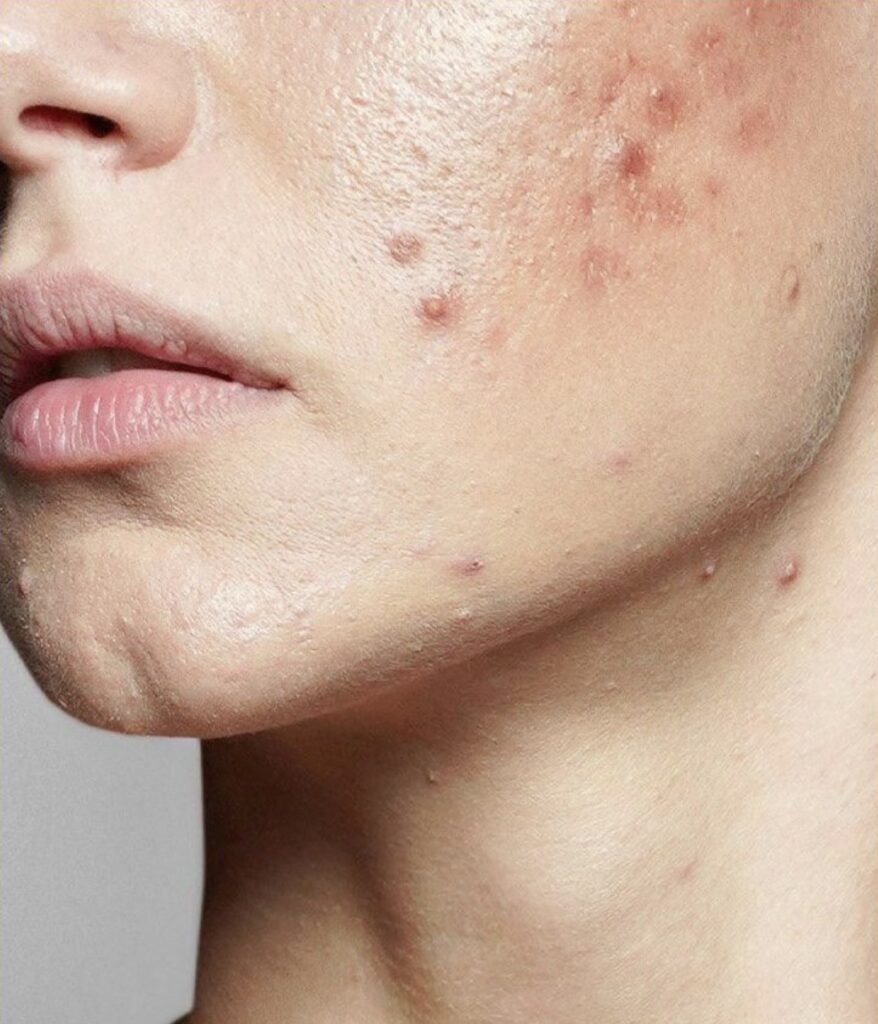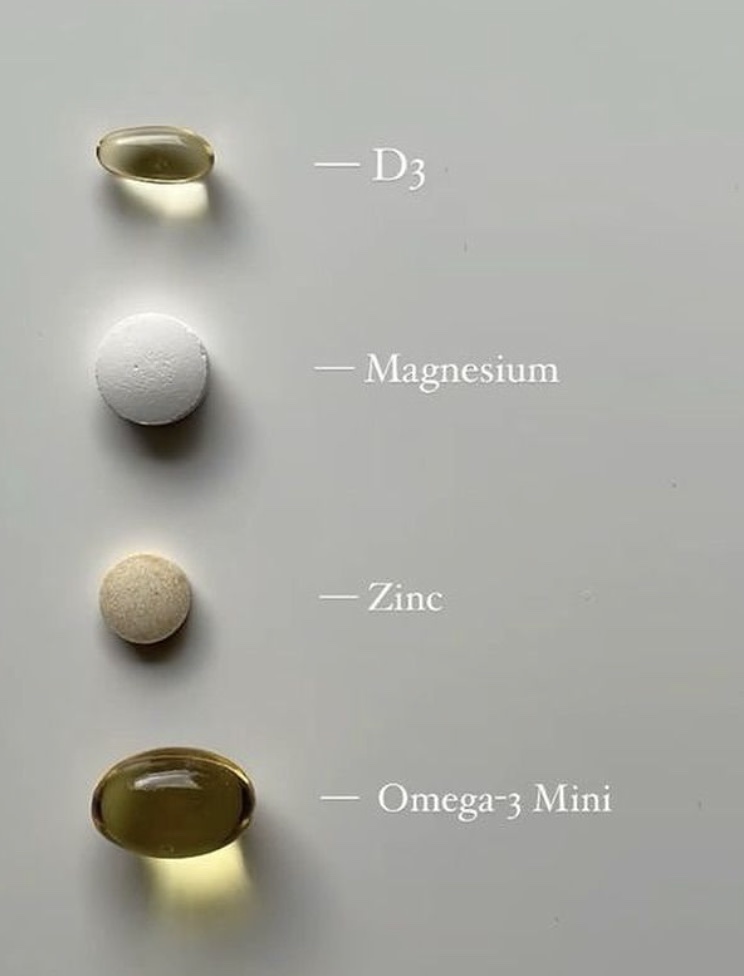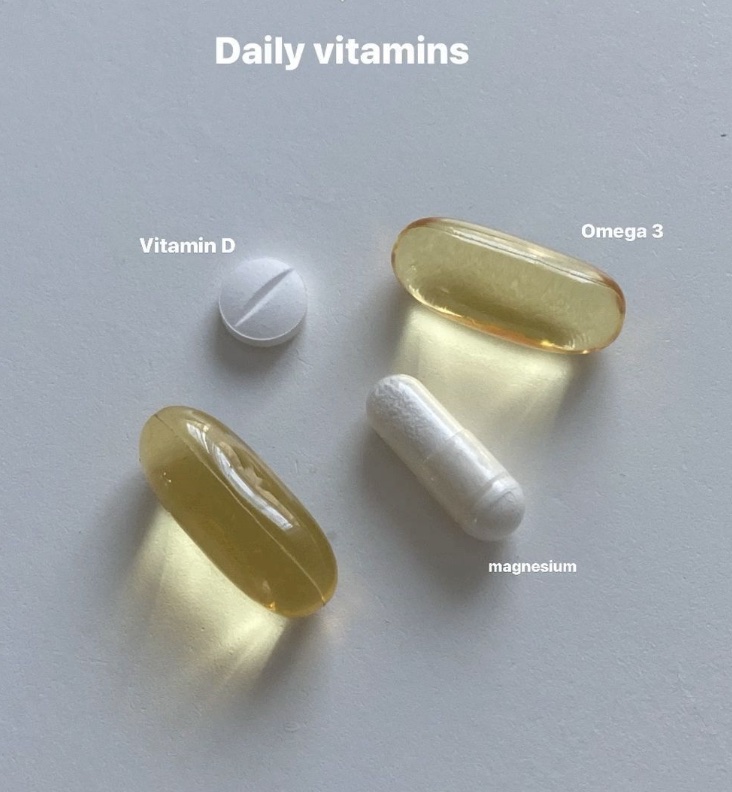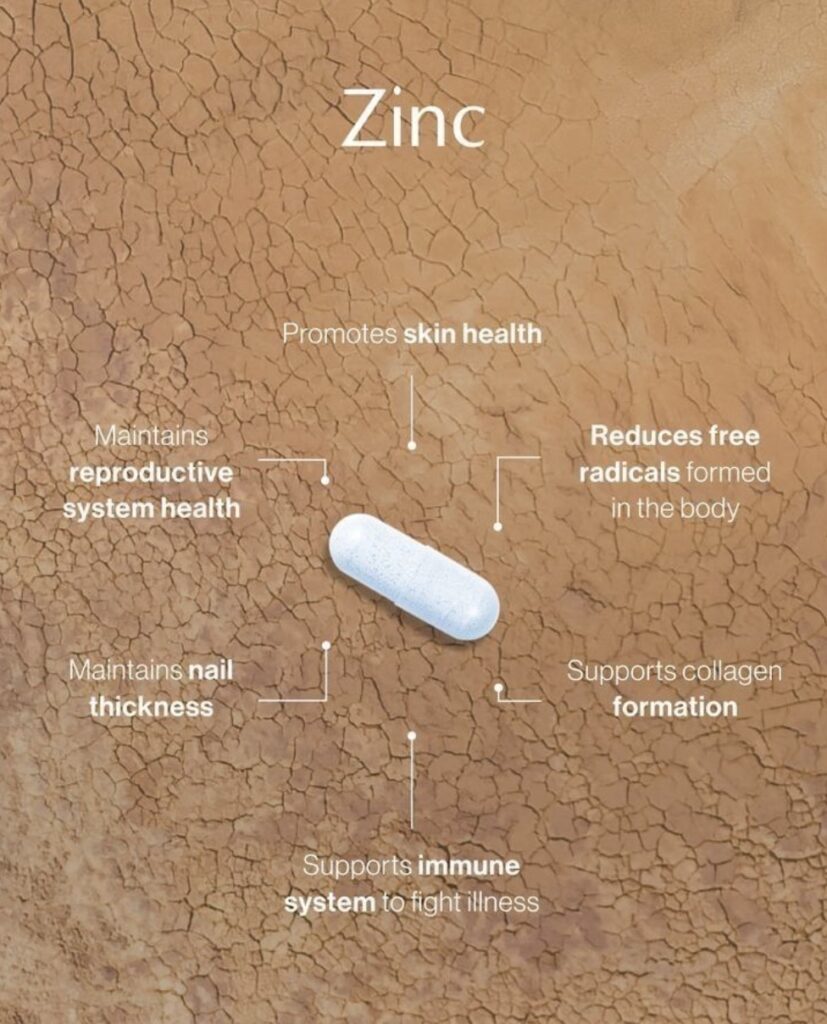Can Supplements Help with Acne? | Top 10 Supplements for Acne | Lifestyle Tips | Hormonal Acne Explained | Supplements for Hormonal Acne | FAQs

Can Supplements Help with Acne?
If you’re looking for the best supplements for acne, it starts with understanding how your internal health affects your skin. While topical products can treat acne on the surface, supplements work from the inside out—addressing root causes like inflammation, hormonal imbalances, gut health issues, and nutrient deficiencies.
Studies show that low levels of certain vitamins and minerals can worsen acne or prevent the skin from healing properly. That’s why the best supplements to take for acne don’t just reduce breakouts—they help your body restore balance, regulate oil production, and support overall skin function.
Whether you’re struggling with occasional breakouts or more persistent hormonal acne, the right internal support can make a noticeable difference. Let’s dive into the top picks for the best supplements for acne-prone skin and how they work to support a clearer, healthier complexion.
Top 10 Best Supplements for Acne
Inflammation-Reducing Supplements
1. Turmeric (Curcumin)
- Key Benefits: Calms inflammation, brightens skin, helps fight bacteria.
- Curcumin, the active compound in turmeric, has powerful anti-inflammatory and antimicrobial properties. It can help calm inflamed breakouts, reduce redness, and potentially slow the growth of acne-causing bacteria. For those with cystic or hormonal acne, turmeric supports healing from within and can even promote a more even, radiant complexion.
2. Omega-3 Fatty Acids
- Key Benefits: Reduces inflammation, supports hydration, improves texture.
- Omega-3s are essential fats that reduce systemic inflammation and support the skin barrier. In acne-prone individuals, they help decrease redness, calm irritated skin, and may reduce the severity of hormonal acne. They also keep the skin hydrated, which is crucial for preventing excess oil production.
3. Zinc
- Key Benefits: Reduces inflammation, controls oil, speeds healing.
- Zinc is a standout mineral for acne management due to its dual role in lowering inflammation and regulating oil production. It can help reduce the severity of pimples and supports faster skin healing by boosting immune function and promoting tissue repair.
Hormone-Balancing & Stress Support
4. Ashwagandha
- Key Benefits: Lowers cortisol, balances hormones, supports skin resilience.
- Ashwagandha is an adaptogenic herb that helps the body manage stress—one of the major triggers for hormonal acne. By reducing cortisol (the stress hormone), it helps lower oil production and prevents stress-induced breakouts. It also supports hormonal balance in women experiencing cycle-related acne.
5. Magnesium
- Key Benefits: Reduces stress, supports hormone regulation, balances oil.
- Magnesium plays a crucial role in calming the nervous system and balancing hormones like insulin and estrogen. It’s particularly helpful for individuals who experience flare-ups during stressful times or around their menstrual cycle. It also promotes better sleep, which is essential for skin repair.
6. Green Tea Extract (EGCG)
- Key Benefits: Calms oil production, reduces inflammation, and fights bacteria.
- Green tea extract, especially EGCG, helps decrease sebum production while calming inflammation and providing antioxidant protection. It has been shown to target acne-causing bacteria and is an excellent option for oily, congested skin. EGCG may also have a mild anti-androgenic effect, making it helpful for hormonal acne.
Gut Health & Digestion Support
7. Probiotics
- Key Benefits: Supports gut health, reduces inflammation, boosts nutrient absorption.
- Probiotics help restore balance to the gut microbiome, which is often disrupted in those with chronic acne. A healthy gut supports the immune system, reduces systemic inflammation, and improves the absorption of key skin nutrients like zinc and vitamin A—all essential for clear skin.
8. L-Glutamine
- Key Benefits: Repairs gut lining, reduces inflammation, supports skin clarity.
- L-glutamine is an amino acid that helps rebuild the intestinal lining, preventing “leaky gut,” which can lead to inflammation and acne. By supporting gut integrity, L-glutamine ensures better nutrient absorption and fewer immune-related skin flare-ups.
Antioxidant & Skin Repair Support
9. Vitamin D
- Key Benefits: Boosts immune function, calms breakouts, strengthens skin barrier.
- Many people with acne have low vitamin D levels. This vitamin enhances immune defense against acne-causing bacteria and supports the skin barrier. It also reduces inflammation and helps modulate hormonal imbalances that may trigger acne.
10. CoQ10 (Coenzyme Q10)
- Key Benefits: Energizes skin cells, promotes healing, protects against oxidative damage.
- CoQ10 is a powerful antioxidant that supports cellular energy and skin repair. It protects against environmental stressors like UV rays and pollution that can worsen breakouts. CoQ10 also improves skin texture and reduces post-acne marks by accelerating skin regeneration.
How to Choose the Right Supplement for You

Choosing the best supplements for acne depends on your specific skin concerns and lifestyle:
- Inflammation-driven acne? Try zinc, omega-3s, or probiotics.
- Hormonal acne? Spearmint and vitamin D can help.
- Digestive issues or poor nutrient absorption? Probiotics are your best bet.
- Already eating a nutrient-rich diet? Focus on filling in gaps rather than over-supplementing.
Tip: Always consult with a healthcare provider before adding new supplements, especially if you’re taking medication or have underlying conditions.
Lifestyle Tips to Maximize Results
Supplements for acne are powerful tools, but they work best when paired with healthy habits:
- Eat whole foods: Prioritize vegetables, lean proteins, and healthy fats
- Stay hydrated: Water helps flush out toxins and hydrate skin from within
- Manage stress: Stress hormones can cause breakouts—practice mindfulness or yoga
- Stick to a skincare routine: Use gentle, non-comedogenic products consistently. Find products for your skin type.
Understanding Hormonal Acne

Hormonal acne is often triggered by fluctuations in hormones—especially androgens like testosterone—which increase oil production and lead to clogged pores, inflammation, and breakouts.
What Does Hormonal Acne Look Like?
- Deep, painful cysts or nodules under the skin
- Breakouts along the jawline, chin, and lower cheeks
- Flare-ups that occur monthly (often around your period)
- Acne that doesn’t respond well to typical over-the-counter treatments
Common Triggers
- Menstruation
- Pregnancy
- Postpartum
- Perimenopause/menopause
- High stress or poor sleep
- PCOS (Polycystic Ovary Syndrome)
How Supplements Can Help Hormonal Acne
Hormonal acne stems from internal imbalances, making supplements an ideal tool to restore harmony from within. When your hormones shift—whether due to menstruation, stress, or conditions like PCOS—they can overstimulate oil glands, clog pores, and inflame the skin. Supplements work to regulate these imbalances by calming stress responses, supporting detoxification pathways, and helping your body break down and eliminate excess hormones naturally.
Why Balancing Hormones Matters
Hormones like androgens (including testosterone) play a key role in acne development. When these hormones rise or fluctuate, they send signals to your skin’s sebaceous glands to produce more oil. This oil mixes with dead skin cells and bacteria, leading to clogged pores and breakouts. Women are especially prone to hormonal acne around ovulation, menstruation, or in response to high stress. Unlike typical acne that responds quickly to surface treatments, hormonal acne often requires internal support and long-term consistency.
Signs Your Acne Is Hormonal
Not sure if your acne is hormonal? Here are some telltale signs:
- You experience monthly breakouts that align with your menstrual cycle
- Acne shows up mostly along your jawline, chin, or cheeks
- You deal with deep, painful cysts that don’t easily come to a head
- Your skin gets worse with stress, poor sleep, or blood sugar spikes
- Over-the-counter acne treatments haven’t helped
If any of these sound familiar, supporting your hormones with specific nutrients and herbs may provide the relief you’re looking for. You can also try out drugstore regemin to help keep your skin clear!
Top Supplements for Hormonal Acne

- Zinc: Zinc helps modulate testosterone levels and acts as an anti-androgen, reducing excess oil production. It also supports the liver in metabolizing hormones and curbing inflammation that can trigger cystic breakouts.
- Ashwagandha: This adaptogen lowers cortisol, the stress hormone that can indirectly spike testosterone and disrupt other hormonal rhythms. By calming the adrenal glands, ashwagandha helps reduce hormonal fluctuations and skin flare-ups.
- Magnesium: Magnesium plays a regulatory role in insulin sensitivity and helps maintain steady blood sugar—two factors that, when out of balance, can lead to excess androgens. It’s also known to ease PMS symptoms that may aggravate skin.
- Green Tea Extract (EGCG): EGCG has been shown to reduce androgen activity and sebum (oil) production, making it ideal for those dealing with oily, hormonal skin. It also combats inflammation and supports clearer pores.
- Omega-3s: These essential fatty acids reduce systemic inflammation and help regulate hormone production. They may be particularly helpful for women with PCOS or menstrual-related acne by lowering levels of prostaglandins that contribute to cramping and acne.
Additional Hormone-Supportive Nutrients
- Vitamin B6: Supports progesterone production and can reduce PMS-related acne.
- DIM (Diindolylmethane): A compound found in cruciferous vegetables that helps metabolize estrogen more efficiently and balance estrogen-dominant conditions.
- Spearmint: Drinking spearmint tea or using spearmint extract may reduce testosterone levels in women, especially those with PCOS.
Real-Life Tips for Hormonal Balance
Beyond supplements, lifestyle changes can dramatically support your skin and hormones:
- Sleep 7–9 hours consistently to allow hormone regulation and skin repair.
- Eat regular, balanced meals with protein and fiber to stabilize blood sugar.
- Avoid endocrine disruptors like BPA and parabens found in plastics and some beauty products.
- Support your liver with leafy greens, dandelion tea, or milk thistle to aid hormone detox.
Holistic Healing Takes Time
It’s important to note that balancing hormones doesn’t happen overnight. In many cases, it can take 2–3 full menstrual cycles (or more) before noticeable improvements appear. Consistency, patience, and a personalized approach are key.
If your hormonal acne persists despite these efforts, it may be worth exploring hormone testing or seeing a healthcare provider who specializes in integrative or functional medicine. Several of the best supplements for acne-prone skin featured in this guide are especially helpful for balancing hormones and reducing the root causes of hormonal breakouts:
- Zinc – Regulates oil production, supports hormone metabolism
- Ashwagandha – Lowers cortisol, supports adrenal health
- Magnesium – Reduces stress, supports insulin balance, eases PMS symptoms
- Green Tea Extract – Reduces oil, offers anti-androgen effects
- Omega-3s – Reduce inflammation, modulate hormone levels
Natural Hormonal Balance Tips
- Manage stress daily – Journaling, yoga, walks
- Balance blood sugar – Eat protein/fat/fiber together
- Get quality sleep – 7–9 hours per night
- Exercise regularly – Supports hormone regulation and circulation
- Avoid harsh skincare – Stick to gentle, non-comedogenic products
When to Talk to a Professional
If supplements and lifestyle changes aren’t enough, consider speaking to a dermatologist or hormone specialist. They can help identify underlying conditions and create a personalized plan.
FAQs About Acne Supplements
What supplements are good for acne?
Supplements that are particularly helpful for acne include zinc, omega-3 fatty acids, probiotics, vitamin A, and green tea extract. These nutrients support the skin by reducing inflammation, regulating oil production, and improving immune and gut health.
Which vitamin is best for removing pimples?
Vitamin A is one of the best vitamins for removing pimples because it promotes healthy skin cell turnover and helps prevent clogged pores. Zinc and vitamin D are also effective for reducing inflammation and supporting skin healing.
Which vitamin A supplement is good for acne?
Look for beta-carotene or retinyl palmitate forms of vitamin A. These are commonly found in skin-supportive multivitamins or standalone supplements. It’s important not to exceed the recommended daily intake, as high doses of vitamin A can be toxic.
Do acne supplements actually work?
Yes, acne supplements can be effective when used consistently and in conjunction with a healthy lifestyle and skincare routine. While they may not be a quick fix, many people see improvements in their skin over time, especially when addressing nutrient deficiencies or hormonal imbalances.
Clear skin doesn’t just come from what you put on your face—it starts from within. The best supplements for acne work by supporting your body’s natural defenses, balancing hormones, calming inflammation, and giving your skin the nutrients it needs to heal and thrive.
By choosing the best supplements to take for acne and pairing them with a consistent skincare routine, a healthy diet, and stress management, you can take meaningful steps toward clearer, more confident skin.
Take control of your skin from the inside out! Learn how the right supplements can support clear, healthy skin and start making informed choices today.
Want to know more about skincare ingredients? Check out Skincare Ingredients for more expert tips!
Follow on Instagram @saltycoveskin